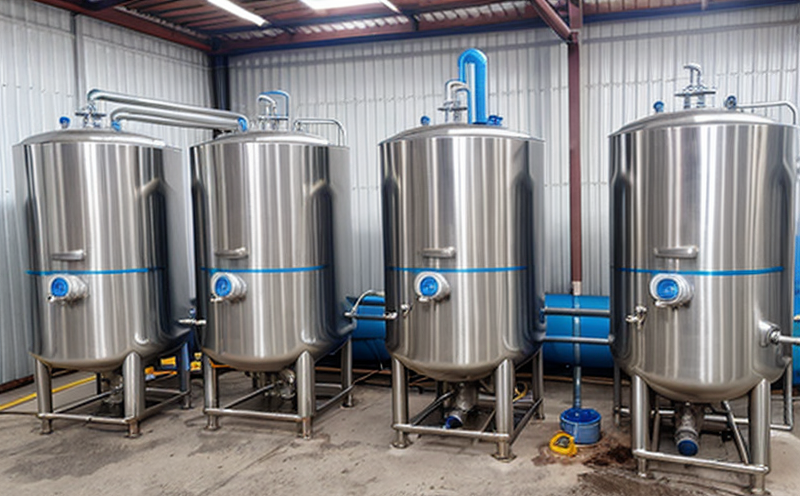APHA 9222B Total Coliform Membrane Filter Test in Cooling Water
The APHA 9222B test method is an integral part of the water and wastewater testing suite, specifically designed for the detection of total coliform bacteria in cooling water systems. This method is crucial for ensuring that industrial processes operate within regulatory compliance and maintain optimal hygiene standards.
Coliform bacteria are often used as indicator organisms to assess the presence of pathogens in drinking water or process water such as cooling water. The APHA 9222B test helps identify potential contamination risks, which is particularly important for industries that rely on large-scale cooling systems. These systems can harbor a wide array of microorganisms, some of which could be harmful if they enter the distribution system.
The total coliform count in cooling water is an essential parameter as it provides insight into the overall quality and safety of the water used by industrial processes. This test helps to ensure that these systems are maintained at a high level of hygiene, thereby protecting the health of employees and the environment.
For a detailed understanding, let's delve deeper into how this test is conducted:
- Sample Collection: Samples are collected from various points within the cooling water system. These samples should be representative of the entire system to ensure accurate results.
- Preparation: The samples are then prepared according to the APHA 9222B protocol, which involves diluting the samples and transferring them into membrane filter units.
- Filtering: The diluted samples are filtered using a membrane filter. This process removes larger particles from the water sample.
- Bacterial Growth: After filtering, the filters are incubated under specific conditions to allow any coliform bacteria present in the sample to grow.
- Detection: Once growth is observed, the presence of total coliforms can be confirmed using appropriate biochemical tests.
The APHA 9222B method ensures that all these steps are followed rigorously, providing reliable and consistent results. This approach not only enhances the accuracy of the test but also increases confidence in the reliability of the data generated.
Scope and Methodology
| Step | Description |
|---|---|
| Sampling | Collect samples from different points in the cooling water system. |
| Dilution and Filtration | Prepare a dilution series of the sample, filter these using membrane filters. |
| Inoculation | Inoculate the filters with appropriate reagents to promote bacterial growth. |
| Incubation and Detection | Incubate the inoculated membranes at specified temperatures, observe for visible colonies indicative of total coliforms. |
Eurolab Advantages
Our laboratory offers a comprehensive service package that includes the APHA 9222B Total Coliform Membrane Filter Test in Cooling Water. Here are some of the key advantages:
- Accurate and Reliable Results: Our experienced scientists ensure meticulous execution, leading to highly accurate results.
- Comprehensive Reporting: We provide detailed reports that include all relevant data and recommendations for improvement.
- Regulatory Compliance: All our tests are conducted in accordance with international standards such as APHA, ensuring compliance with regulatory requirements.
- Expertise and Experience: Our team has extensive experience in water testing, providing insightful analysis and support.
Why Choose This Test
- To ensure the safety of employees who work with or near cooling systems.
- To prevent potential contamination of the cooling water distribution system.
- To maintain regulatory compliance, which is essential for avoiding legal and financial penalties.
- To protect the environment from potential harmful effects caused by microorganisms in the water.
- To optimize the efficiency of industrial processes that rely on clean water.





